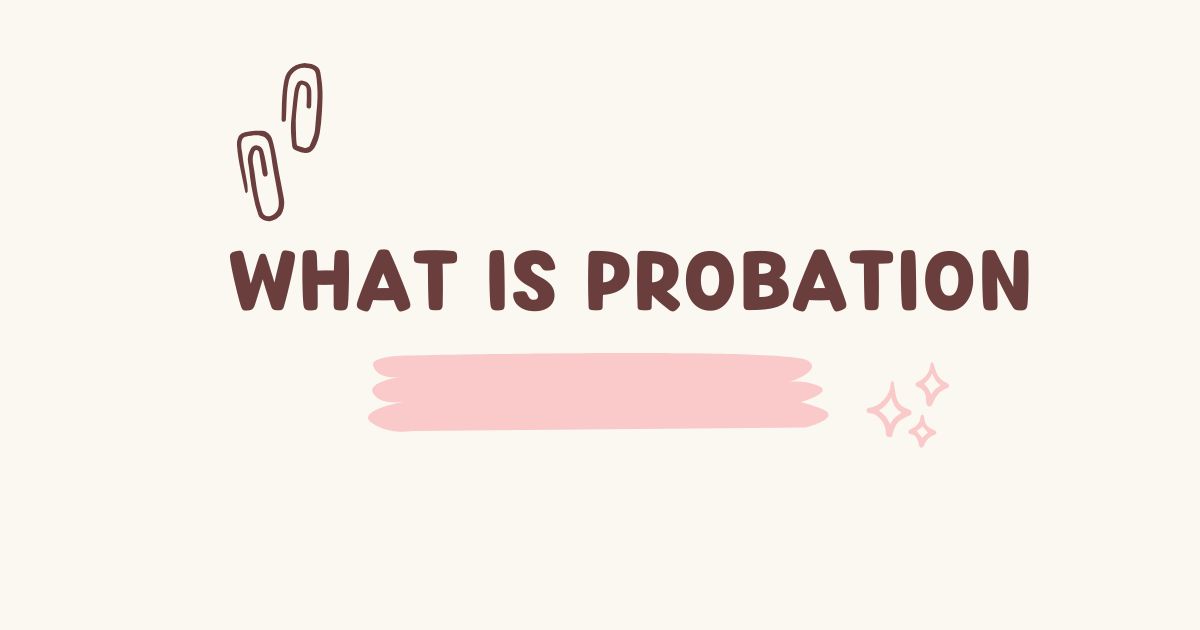Probation is a legal sentence that allows individuals convicted of a crime to remain in their community under supervision instead of serving time in jail or prison. It is often considered a second chance for offenders to demonstrate good behavior and reintegrate into society without being incarcerated. Courts typically impose probation as an alternative to incarceration or as part of a split sentence.
Purpose of Probation in the Legal System
The primary goal of probation is to rehabilitate offenders while ensuring public safety. Rather than punishing through imprisonment alone, probation focuses on correction and community reintegration. It helps ease prison overcrowding and gives people an opportunity to address behavioral issues, receive counseling, and make amends.
Types of Probation Sentences
There are several forms of probation tailored to the offender’s crime and personal circumstances. These include:
Supervised probation, where the individual must report regularly to a probation officer.
Unsupervised probation, where the offender checks in less frequently or not at all, dependingon their compliance.
Community control or house arrest, involving restrictions such as electronic monitoring.
Shock probation, where an individual serves a brief prison term followed by probation to deter future criminal acts.
How Probation Differs from Parole
While often confused, probation and parole are distinct. Probation is a court-ordered sentence that happens instead of jail time, while parole is granted after part of a prison sentence is served. Probation occurs before or in place of incarceration; parole follows incarceration and is decided by a parole board.
Eligibility for Probation
Not all offenders qualify for probation. Judges consider the nature of the offense, criminal history, victim impact, and likelihood of rehabilitation. Non-violent first-time offenders are most often granted probation, whereas those with serious or repeat offenses may not be eligible.
Terms and Conditions of Probation
Probation always comes with conditions that vary case by case. Typical rules include:
Regular check-ins with a probation officer
No further criminal activity
Attending counseling or drug rehabilitation
Submitting to random drug testing
Seeking or maintaining employment
Travel restrictions and curfews
Failure to follow these terms can result in penalties, including revocation.
Role of the Probation Officer
A probation officer acts as both a supervisor and mentor. Their duties include monitoring compliance, conducting drug tests, visiting homes or workplaces, and writing progress reports for the court. They also help offenders access resources such as job training or therapy, making their role vital to rehabilitation.
Violation of Probation
Breaking probation terms is a serious offense. Common violations include missing appointments, failing drug tests, or committing another crime. When a violation is reported, a hearing may be scheduled, and penalties may include extended probation, increased supervision, or jail time.
Revocation and Consequences
If a court determines that an offender has violated their probation, it may revoke the probation order entirely. This means the person could be sent to jail or prison to serve the remainder of their sentence. Revocation is generally a last resort, used when rehabilitation fails or the individual poses a danger.
Length of Probation Sentences
Probation periods vary depending on the severity of the crime and local laws. Some probation sentences last a few months, while others can span several years. In many jurisdictions, early termination is possible if the offender complies with all conditions and demonstrates genuine reform.
Benefits of Probation
Probation offers several advantages. It keeps families together, reduces taxpayer costs, and allows offenders to maintain employment or education. Most importantly, it promotes personal accountability and the chance to avoid future crimes through support services.
Drawbacks and Criticism of Probation
While beneficial, probation isn’t without flaws. Critics argue that strict conditions can set people up for failure, especially those dealing with addiction or poverty. Additionally, racial disparities and unequal access to legal resources can affect who gets probation and who doesn’t.
Probation in Juvenile vs. Adult Cases
Juvenile probation often includes educational components and therapy tailored to youth development. Adult probation is more structured and punitive. However, both systems focus on rehabilitation and preventing reoffending through supervision and support.
Technological Advancements in Probation
Technology has reshaped probation practices. GPS monitoring, automated drug testing, and virtual check-ins help officers manage large caseloads more effectively. These tools also make it easier for low-risk individuals to remain compliant with less intrusion.
Probation as a Rehabilitative Tool
The heart of probation is rehabilitation. Through support services like mental health counseling, anger management, substance abuse programs, and employment training, probation helps address root causes of criminal behavior. This supportive framework can lead to lasting change and lower recidivism rates.
How Probation Impacts the Justice System
Probation alleviates pressure on the correctional system by reducing prison populations and shifting focus from punishment to correction. This shift has led to more balanced approaches in sentencing, allowing for better resource allocation and increased public safety.
Successful Completion of Probation
When someone completes probation successfully, their case is often closed with no further legal consequences. In some cases, their criminal record can be expunged, helping them find jobs and reintegrate into society more smoothly. Success stories highlight how probation can be a true turning point.
Probation and Mental Health Considerations
Many people on probation deal with mental health challenges. Recognizing this, modern probation programs increasingly incorporate psychological evaluations and mental health treatment plans. Addressing these underlying issues is essential to preventing reoffending.
The Future of Probation
Probation continues to evolve. There’s a growing emphasis on individualized plans, restorative justice practices, and alternatives to revocation. Policymakers aim to balance accountability with compassion, ensuring that probation remains both just and effective.
Conclusion
Probation is more than just a legal sentence—it’s an opportunity for a fresh start. When implemented fairly and with adequate support, it can help individuals move past mistakes and rebuild their lives. While it comes with strict rules and challenges, probation ultimately serves the broader goals of justice, safety, and rehabilitation.
FAQs
Can you travel while on probation?
Travel is often restricted, but special permissions may be granted. Always check with your probation officer before making plans.
is probation the same in every state?
No, probation laws and procedures vary widely by state. Local courts set specific rules based on jurisdiction.
What happens if you miss a probation appointment?
Missing appointments is considered a violation. It can lead to warnings, increased supervision, or even jail time.
Can you work while on probation?
Yes, in fact, maintaining employment is often a requirement. It shows responsibility and helps with reintegration.
is it possible to end probation early?
Yes, if you’ve complied with all conditions and your probation officer recommends it, the court may grant early termination.















